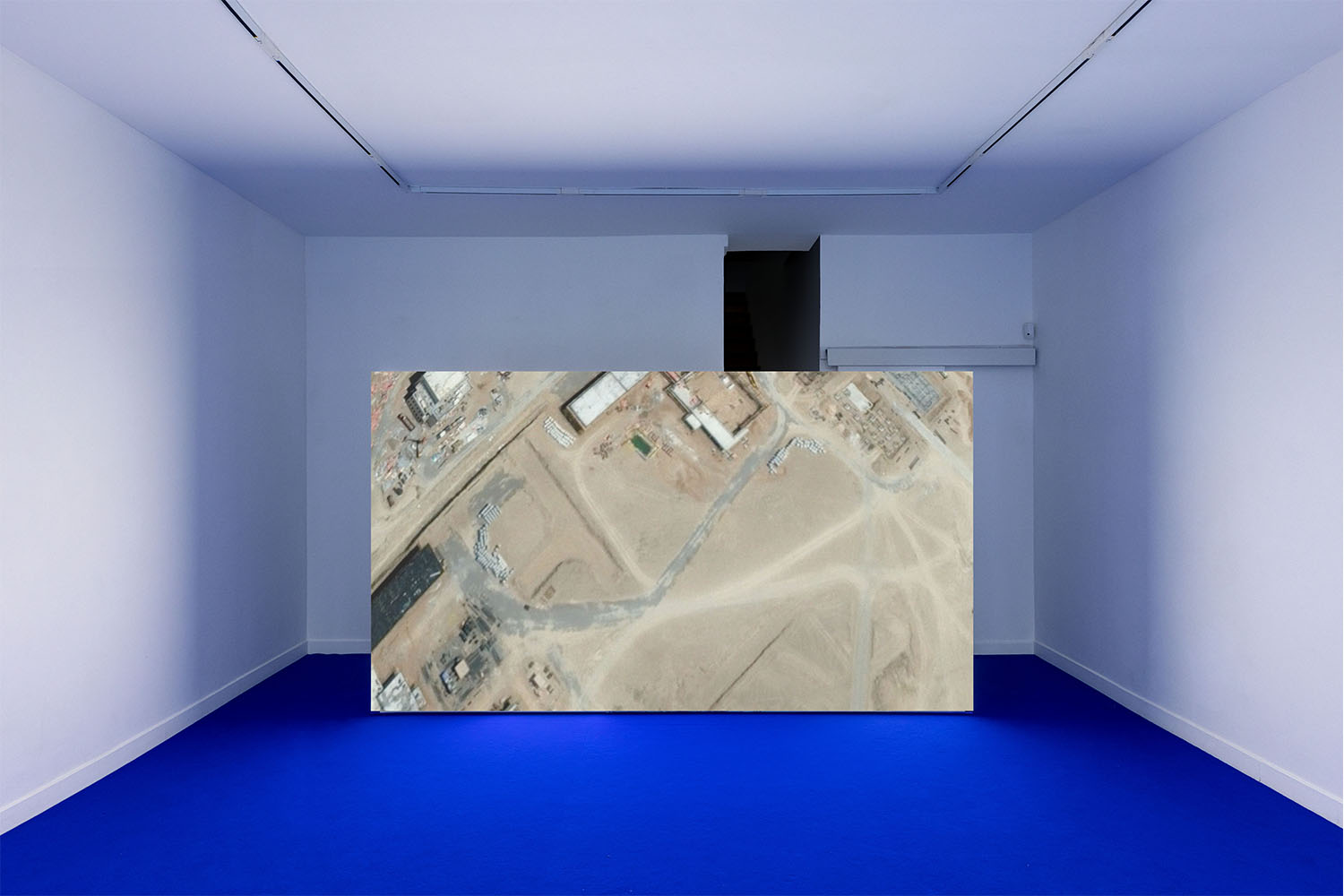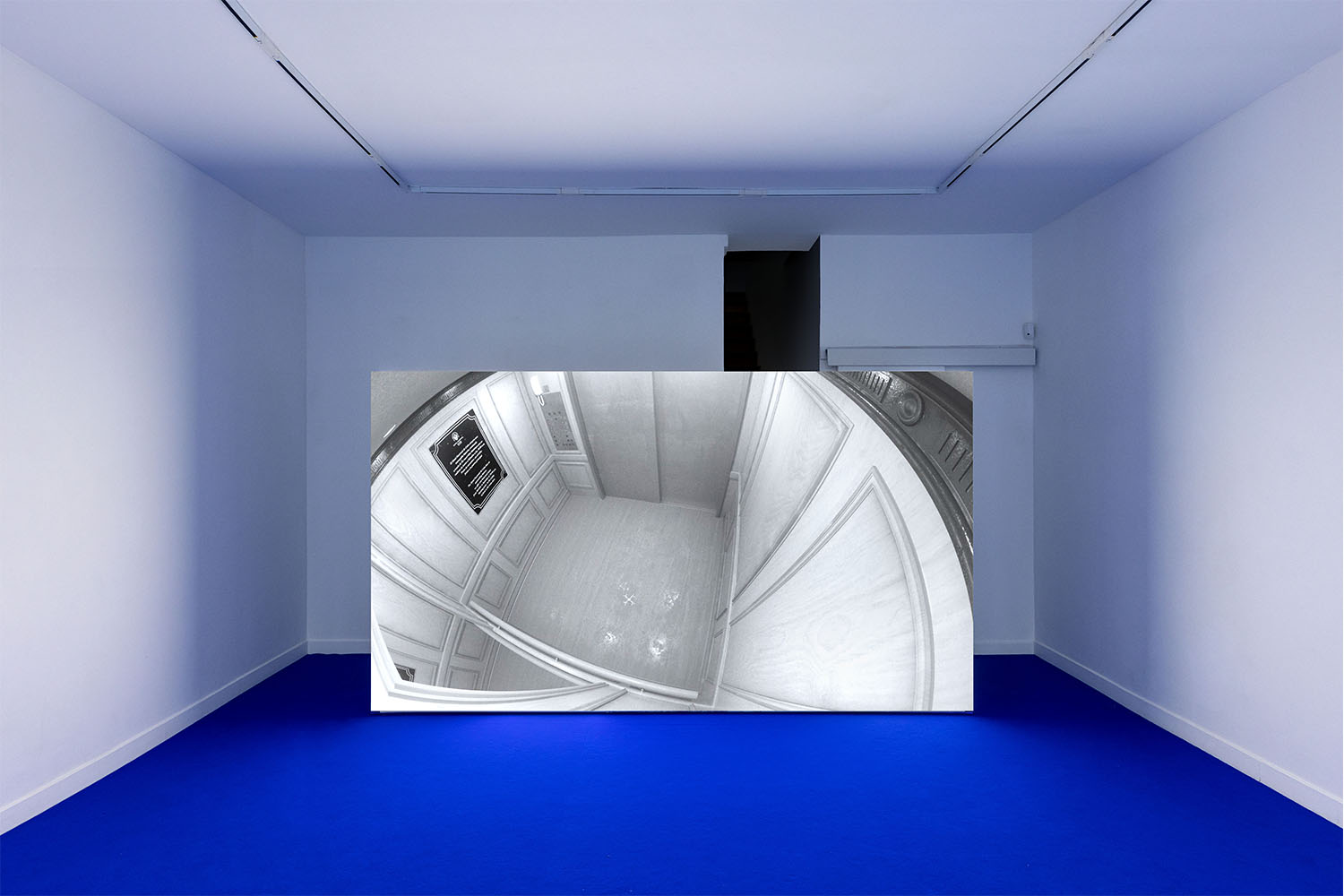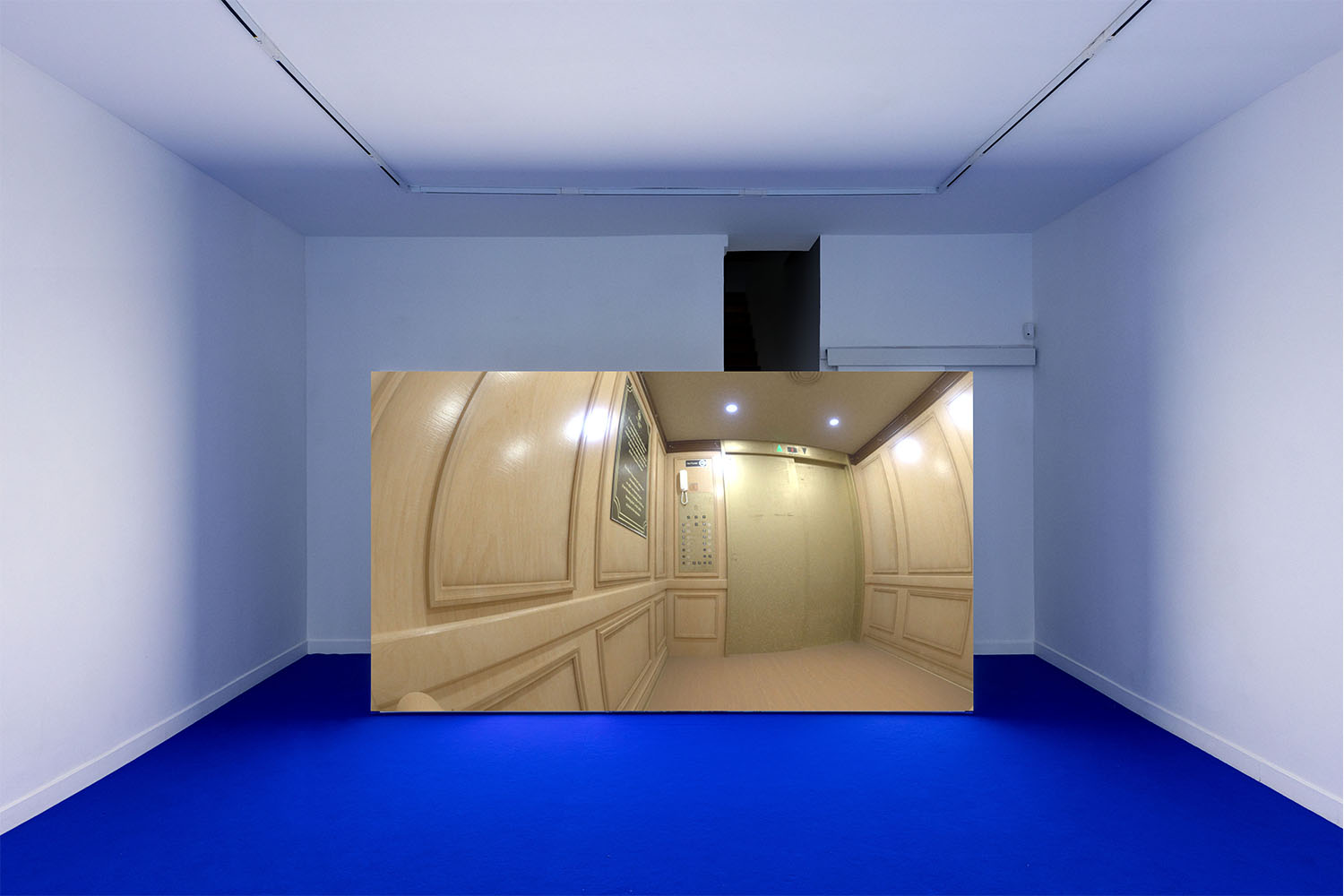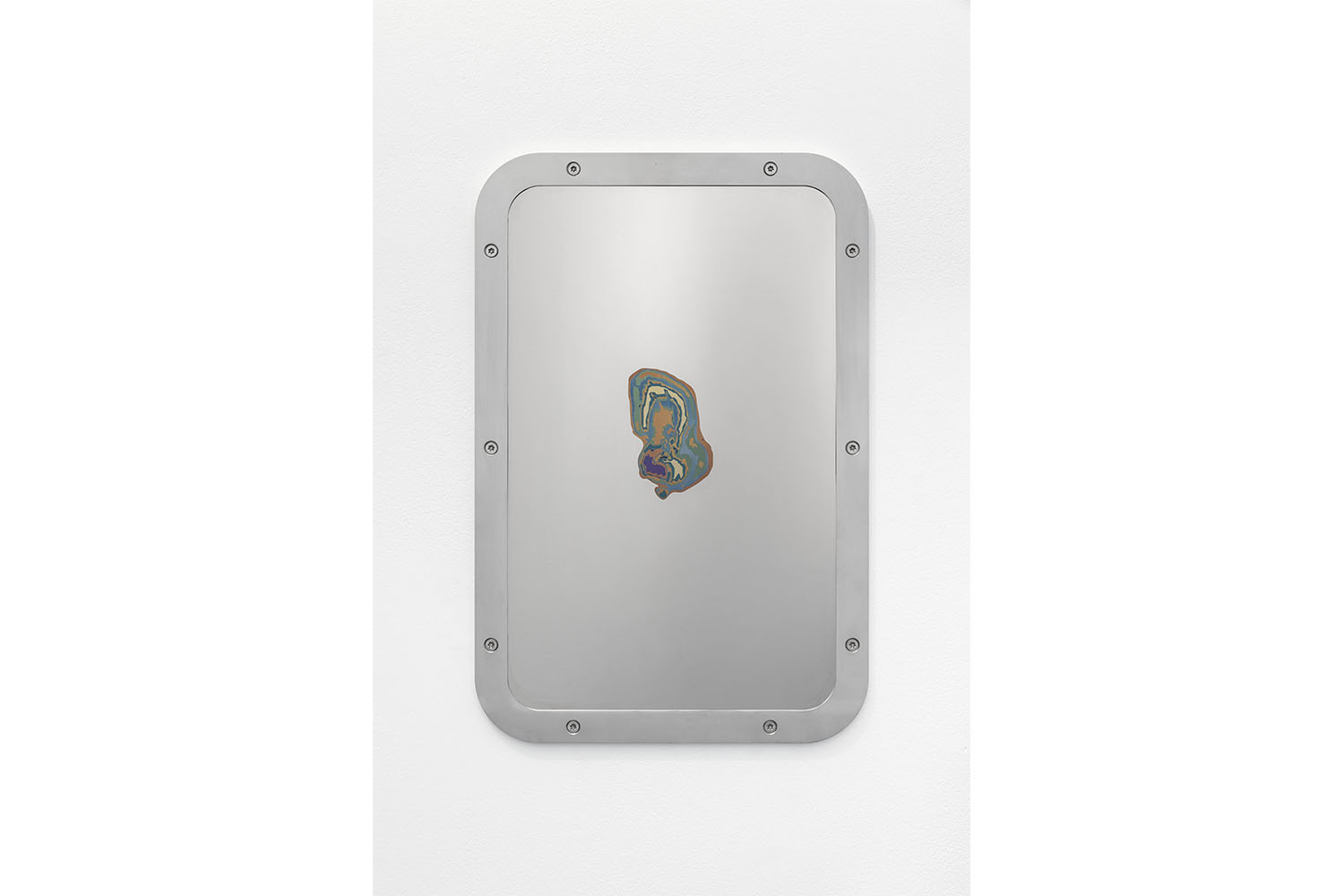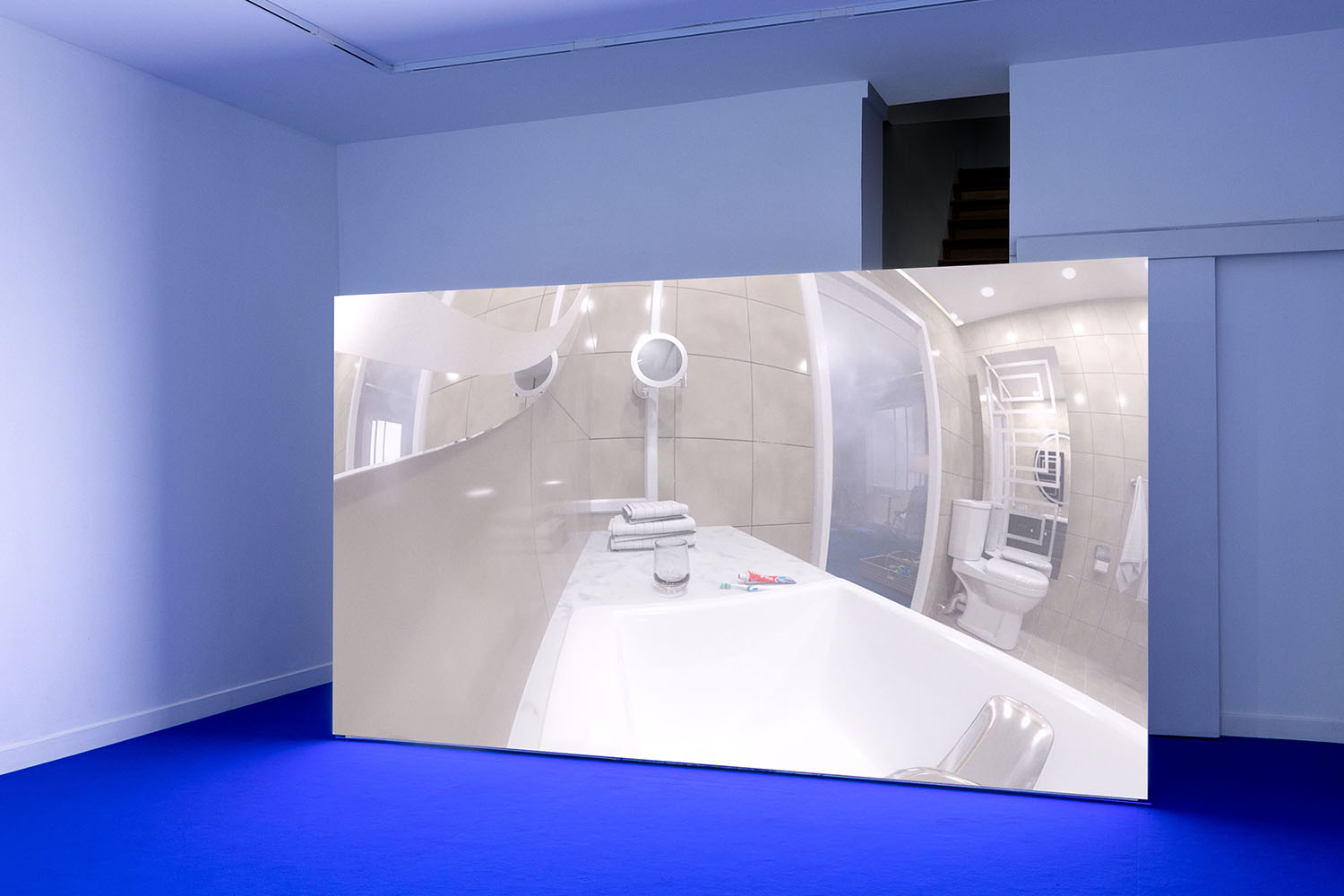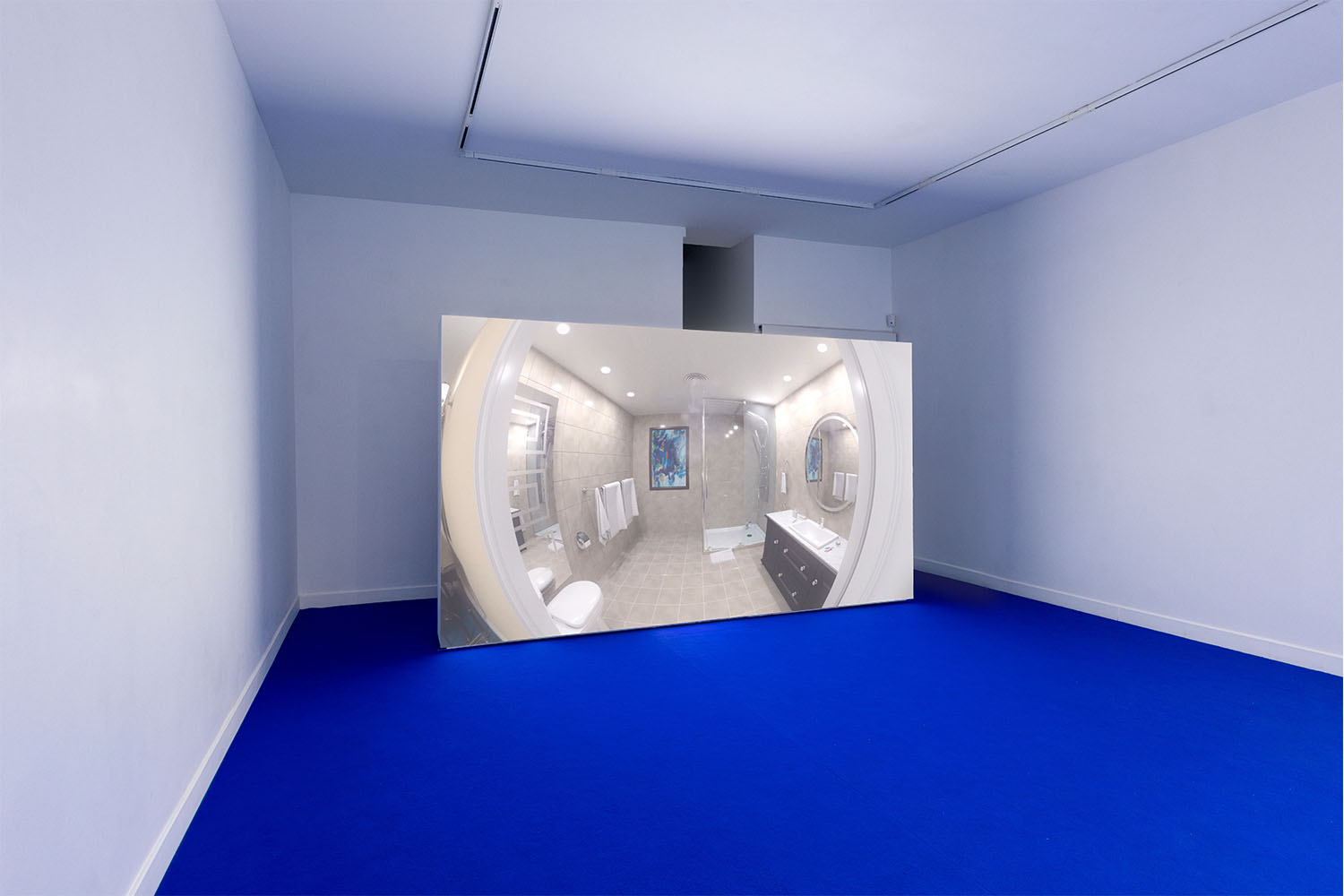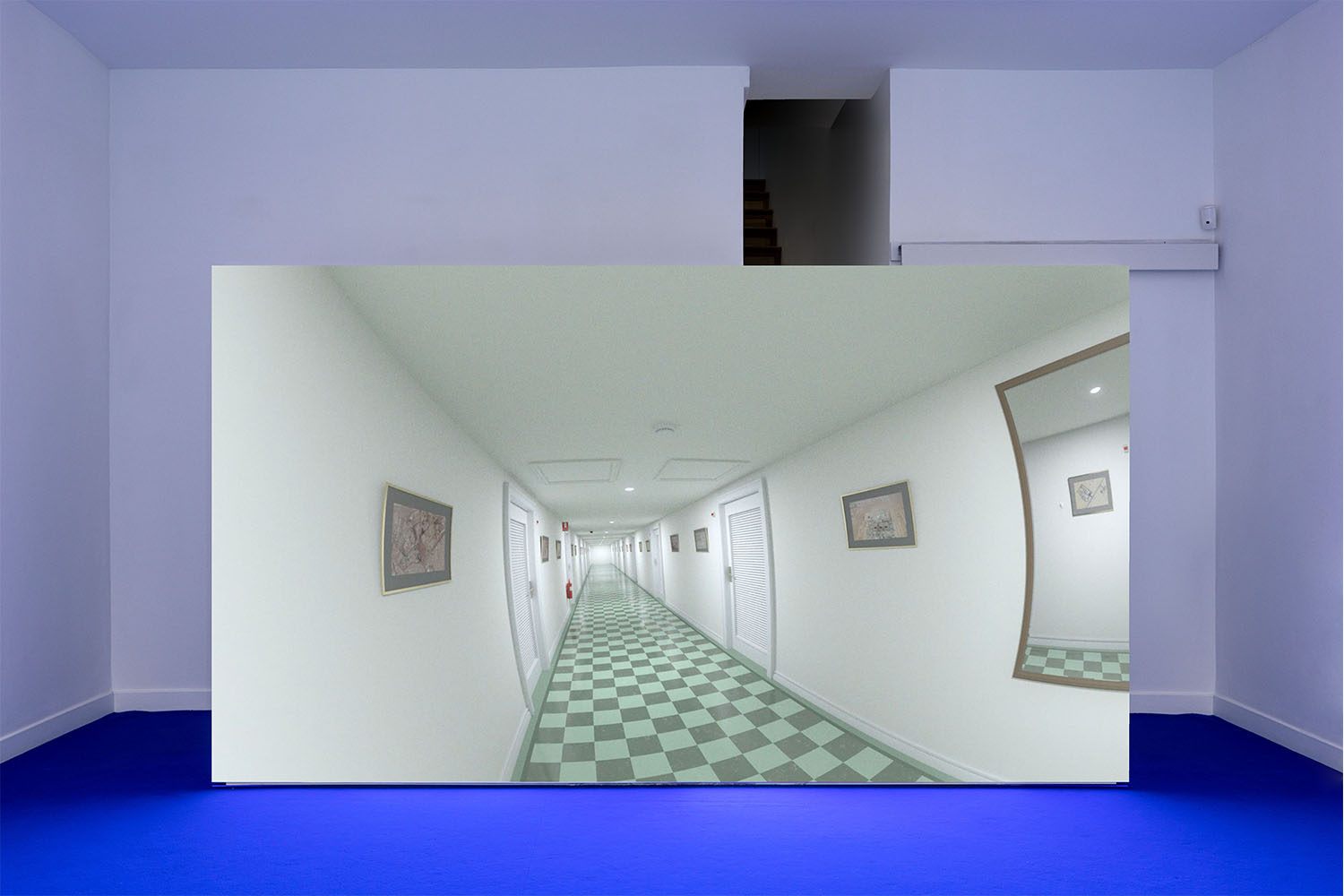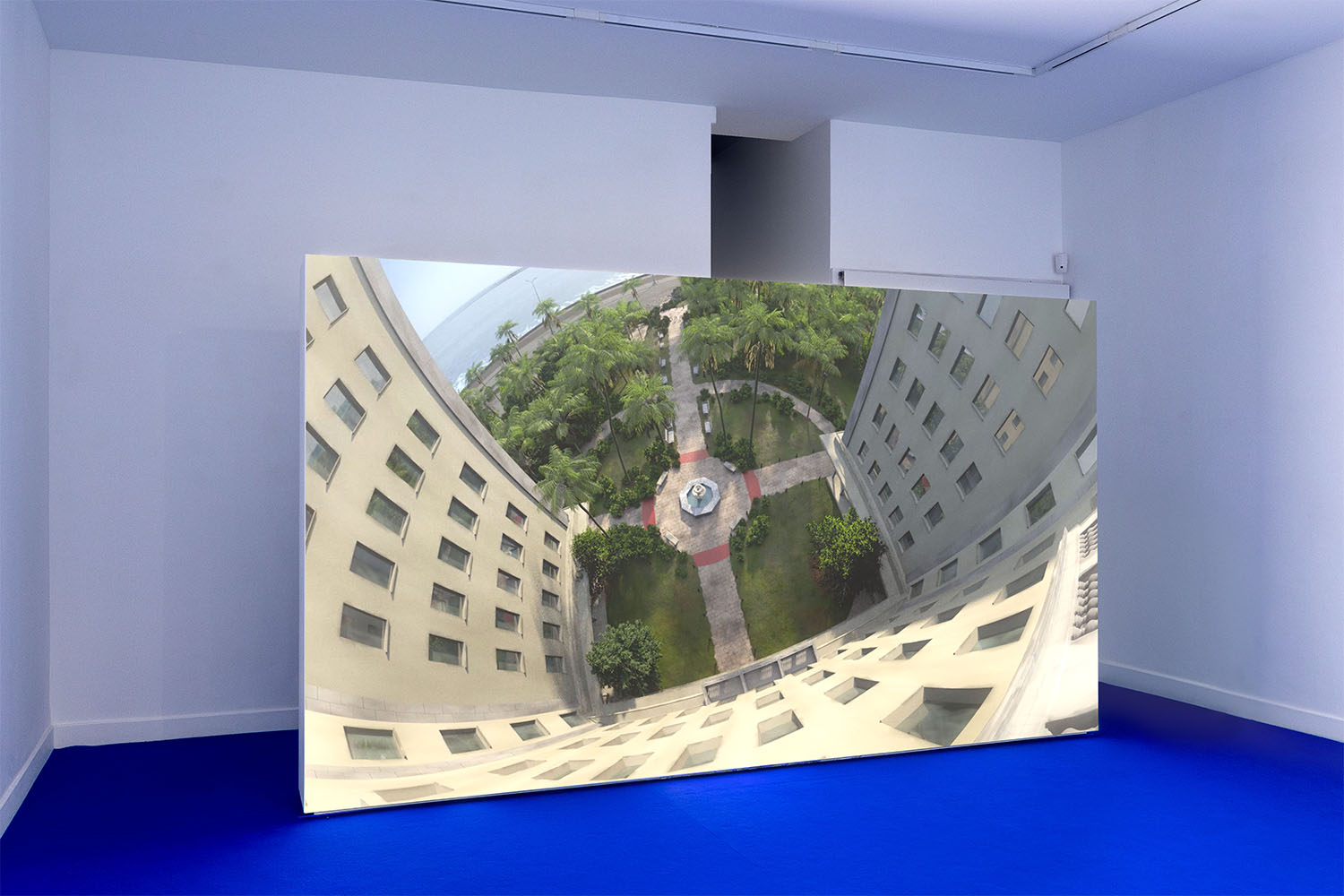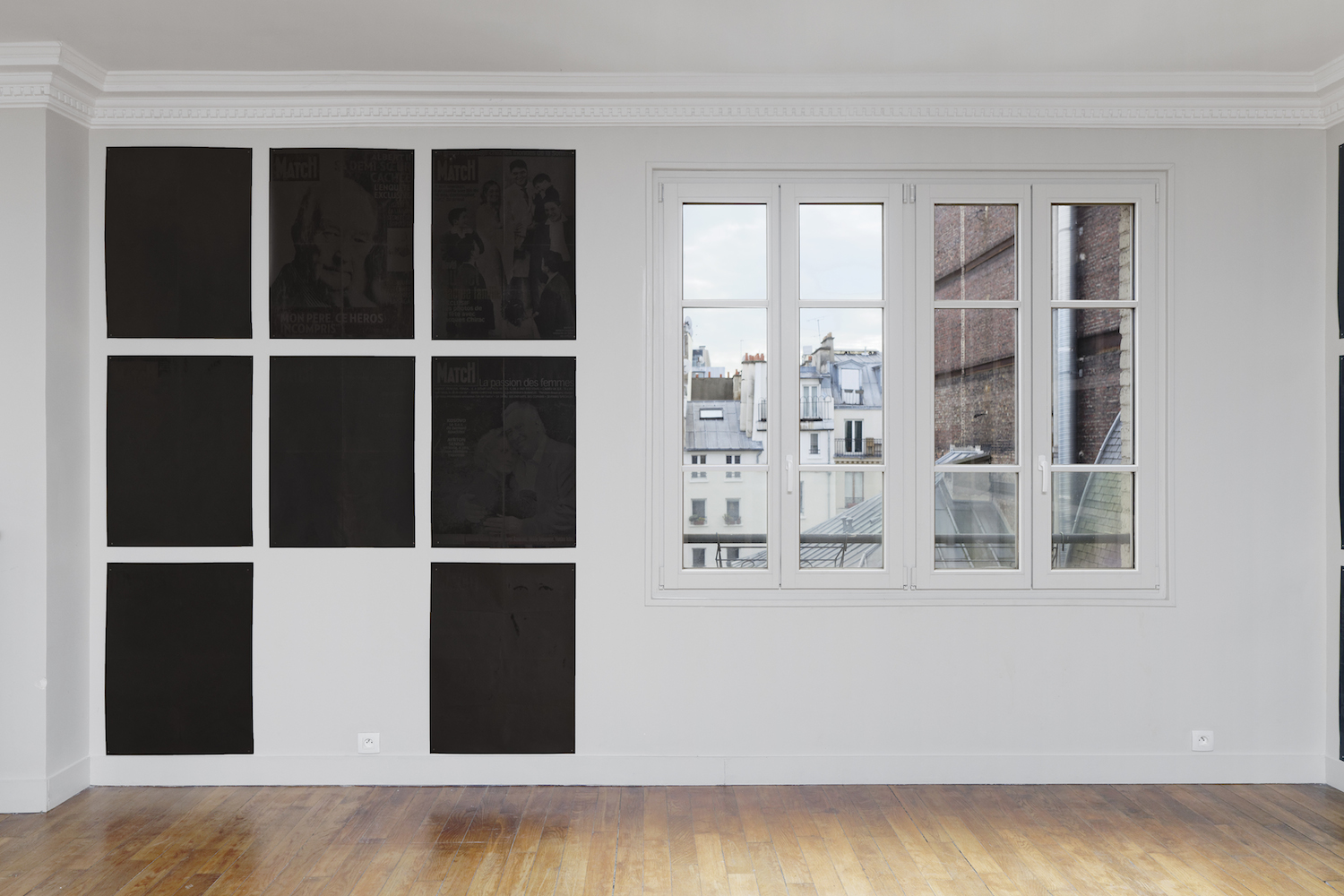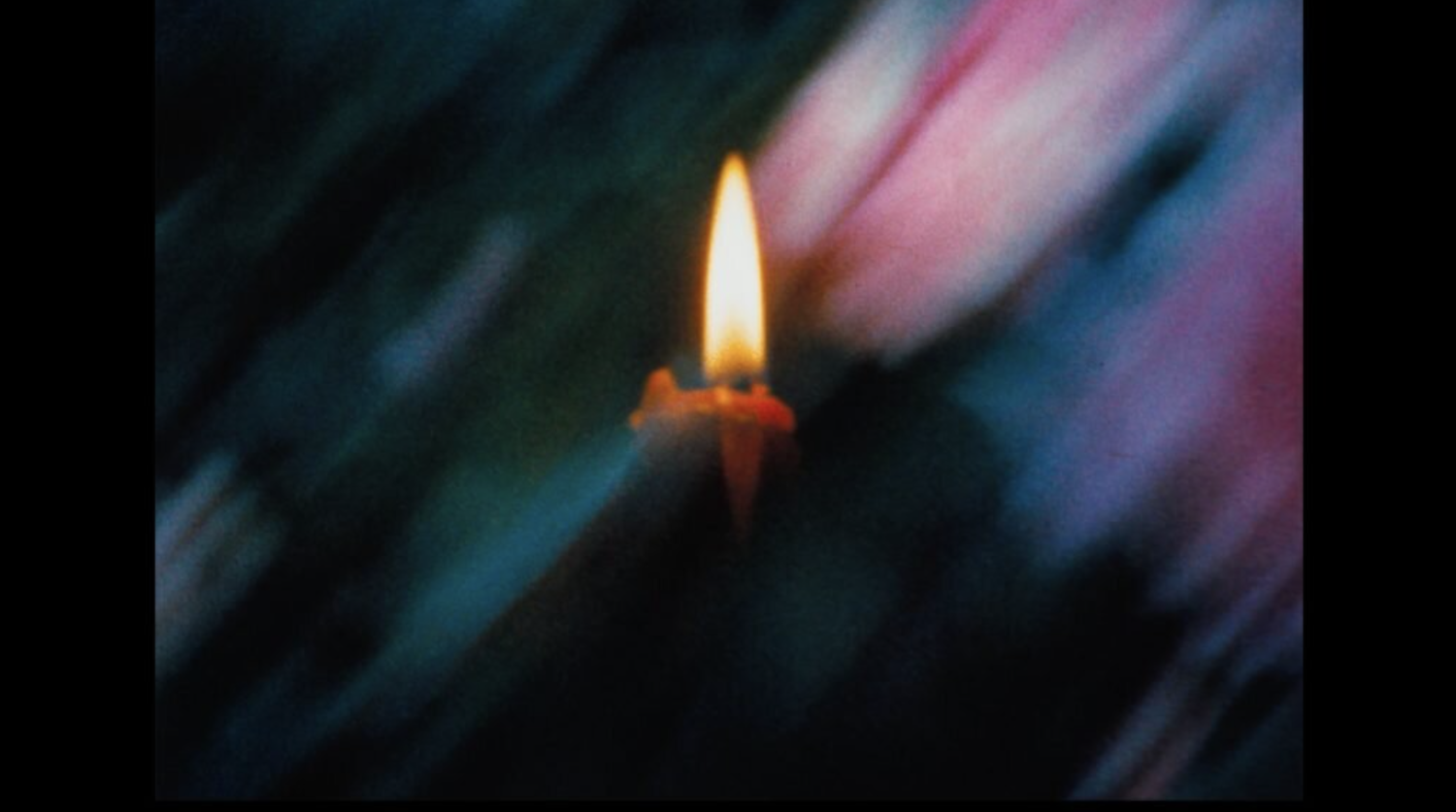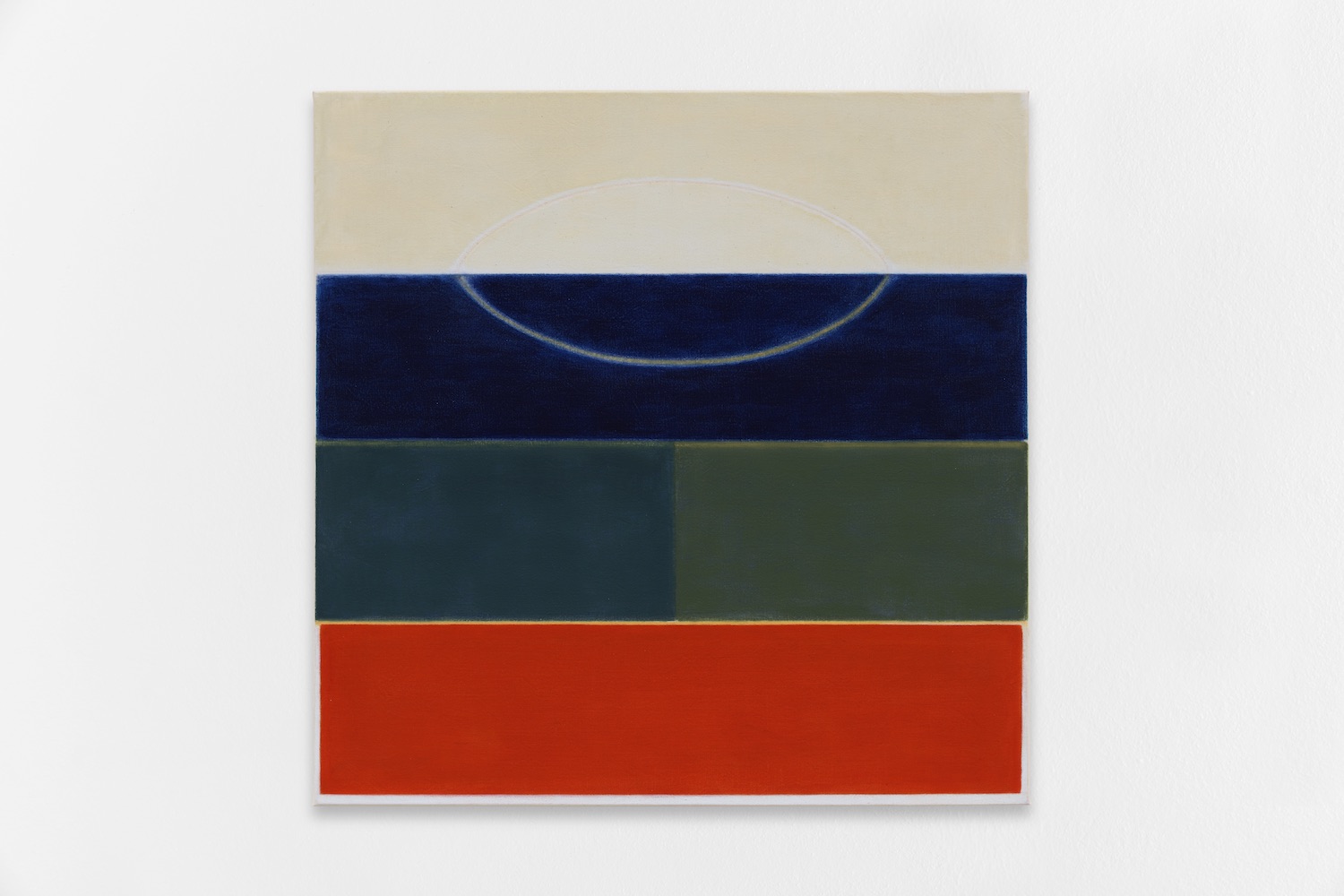A nano drone, deployed as an observer, wanders through the corridors of the Hotel Nacional de Cuba. The images are juxtaposed with views from surveillance cameras placed at various corners of the hallway, forming distant instances targeting each other. The hotel, in its Spanish eclectic style, with its emerald checkerboard tiled floor and 1930s-style furniture, is deserted. The drone takes the viewer into an occupied suite: camera equipment, a phone and computer devices, an open suitcase with personal belongings, and classified documents from the U.S. government are left scattered across two rooms.
The television, still on, shows a news report in which Kamala Harris evades reporters’ questions about the potential threat of a sonic attack called ‘Havana Syndrome’. Through ventilation shafts, smoke gradually fills the hotel causing a dizzying effect. Built in 1930 and initially run by American entrepreneurs, the hotel, located in Vedado, Havana, is emblematic of the city’s tumultuous political history.
In 2017, U.S. intelligence officers staying at the Hotel Nacional reported feeling sick from a mysterious illness, reinforcing suspicions of a targeted attack. Symptoms, potentially caused by buzzing sound, ranging from a sense of pressure in the skull to feeling dizzy, and having difficulty breathing. By late September 2017, U.S. embassy staff in Havana was reduced by more than 60 percent, effectively closing the U.S. Consulate. Considered by the U.S. government to be a foreign political attack, research into Havana Syndrome has never reached a definite verdict until today.
With her latest film Moving Target Shadow Detection (2022), Sung Tieu continues her research into systems of psychological warfare and the political agency of information. Departing from her investigations into PSYOPS (Psychological Operations of the U.S. army) and more specifically Ghost Tape No. 10, the sonic weapon produced by U.S. officials and deployed during the war in Vietnam, the new video work draws parallels between that eponymous ghost tape and Havana Syndrome.
For her series Exposure to Havana Syndrome, the Berlin- based Vietnamese artist conducted experiments with the reconstruction of the alleged sonic attack, which the U.S. government released as evidence in order to analyze its supposed repercussions. The results of the MRI scans of her brain showed that the parts responsible for image creation were particularly active, implying the potential of its imaginative abilities. By drawing parallels between the experiences reported by U.S. officials and her own, Tieu forms a counter-narrative questioning the impact of news readings and the way we consume information; its lack of neutrality, and its subjective potentialities. For if indeed this presupposed Havana Syndrome had been widely presented as a tactic of invisible war by the media groups of North America, it had also participated in the skepticism of the U.S. population towards external authorities, at the same time that Donald Trump was entering the White House.
– Hugo Bausch Belbachir

